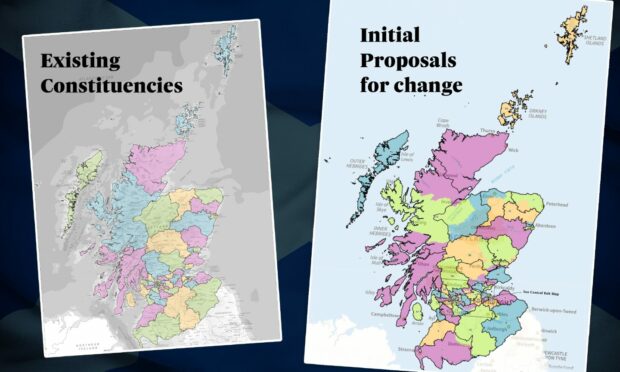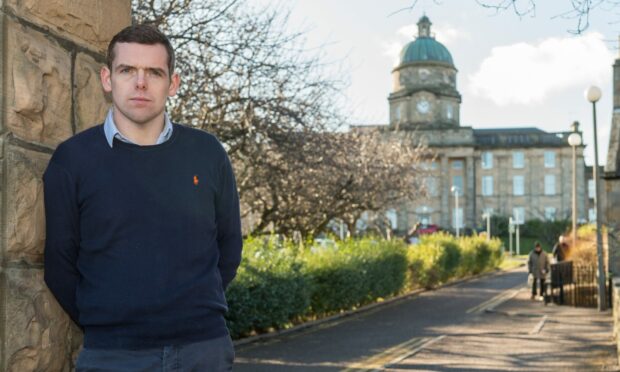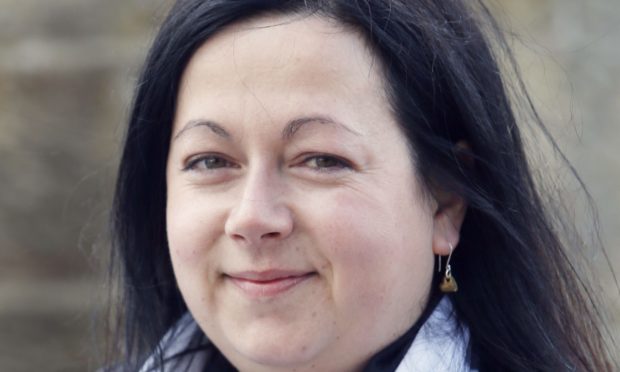Scottish Conservative leader Douglas Ross is to defy the UK Government over proposals to scrap his Moray constituency, as part of a planned overhaul of UK Westminster boundaries.
Scotland would lose two Westminster seats under the 2023 Review of UK Parliament constituencies, reducing the number of representatives from 59 to 57.
The SNP claimed the shake-up will “weaken” Scotland’s voice in Westminster and plan on opposing the moves.
Under the scheme, England would gain an additional 10 MPs, at 543. No change would be seen to the number of members in Northern Ireland, while Wales would lose eight.
A public consultation will take place over the next eight weeks, with people invited to share their views on the redesign and renaming of some of Scotland’s Westminster seats.
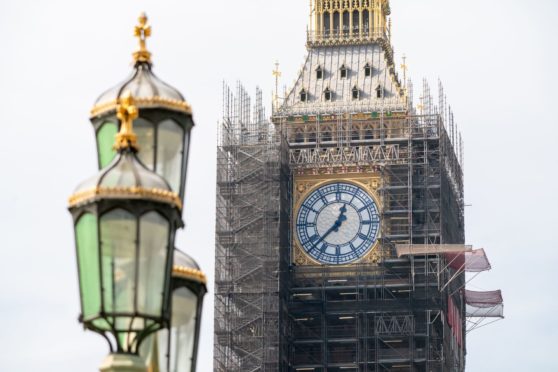
The proposals, which looked to resolve parity issues in the number of voters in constituencies, will have to be approved by Parliament.
But the commission hopes any changes would be in place by 2024 – when the next general election is expected.
The parameters of the review have said the number of voters in each constituency must fall between about 70,000 and 77,000, unless the area would cover more than 12,000 square kilometres.
What will change where I live
The Moray seat would be split into three — Highland East and Elgin, Banff and Buchan and Gordon and Moray South.
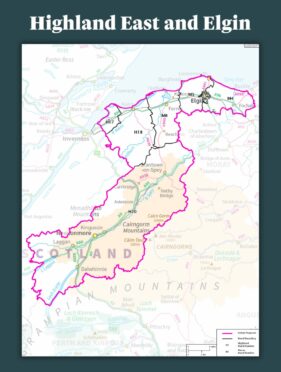
Inverness, Nairn, Badenoch and Strathspey would be split between Highland East and Elgin and the proposed Highland Central seat.
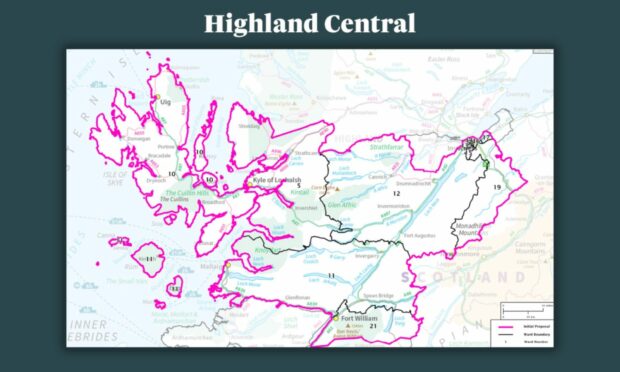
Ross, Skye and Lochaber and Caithness, Sutherland and Easter Ross constituencies would be split into the new Highland Central and Highland North seats.
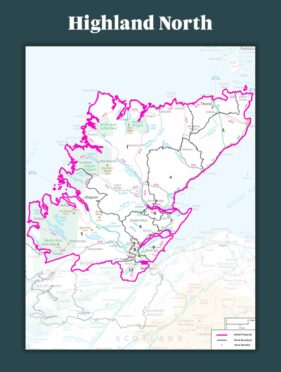
Highland Central would take on Drumnadrochit in the north east and go as south as Fort William. Skye would form part of the constituency also.
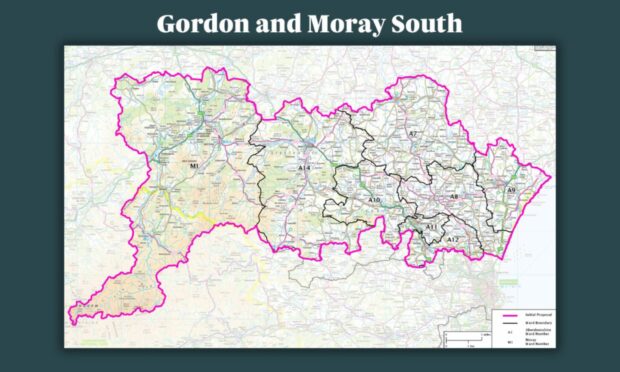
Aberdeen North would take on part of the current Gordon constituency, including Bridge of Don and Dyce.

Aberdeen South would stretch as far as Pittodrie Stadium in the north east, while Rosemount would stay part of Aberdeen North.
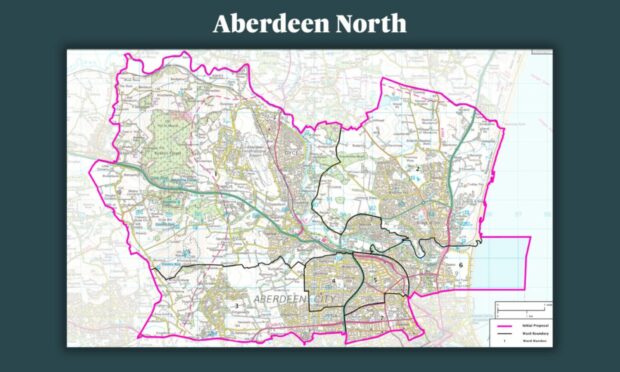
West Aberdeenshire and Kincardine would remain relatively unchanged.
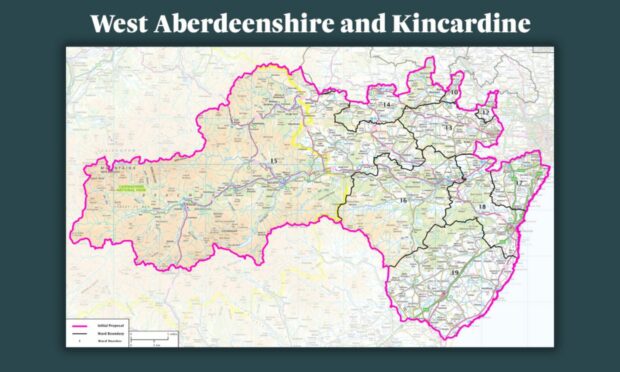
Na h-Eileanan an Iar (the Western Isles) and Orkney and Shetland are protected in the legislation and will not be subject to change.
Scottish Tory leader to fight changes
Scottish Conservative leader Douglas Ross, who will stand down as MP for Moray at the next election having been elected an MSP, said he would oppose his government’s plans for boundary changes.
He said: “While I have already said that I will not be fighting the Moray seat at the next election, as the current MP I can’t support the proposals to carve-up the Moray constituency.
“It has been a huge honour to represent my home area as the local MP, but under these proposals, many historic local links would be lost and Moray’s identity diluted. The current seat works well as all the electors are within the Moray Council area and are represented by a single MP. Under these plans the same area would be represented by three MPs who would also be dealing with Highland or Aberdeenshire areas.
“The Boundary Commission need to go back to the drawing board and re-think these plans. I will be opposing them as I strongly believe the present Moray seat is best option for the area and local residents.
“I know the Boundary Commission have a difficult job, but I hope they will look again at their proposals and see that the correct decision is to maintain this long-standing seat.”
SNP condemn plans
SNP Westminster Deputy Leader Kirsten Oswald MP said: “Tory plans to further reduce Scotland’s representation at Westminster, while increasing the number of MPs for England, underlines the need for Scotland to become an independent country – in full control of our own democratic decisions and with the full powers needed to build a stronger, fairer and greener future.
“The SNP will strongly oppose any attempt to weaken Scotland’s voice in the UK Parliament but the reality is Scotland will always be outvoted under the broken Westminster system – as we have seen with Tory austerity cuts, Brexit and power grabs imposed against Scotland’s will. Independence is the only way to keep Scotland safe from damaging Westminster decisions and Scotland’s best future lies as an independent country.”
Promising start
Lord Matthews, Deputy Chair of the Boundary Commission for Scotland, said: “I believe this is a promising start to delivering the requirements of the new rules that mean the number of constituencies in Scotland will reduce from 59 to 57 and that each mainland constituency must have broadly the same number of electors.
“We have set out proposals today which do that and are, we believe, a good implementation of the rules set by Parliament.
“Thursday is the beginning of a process and we now want to hear the views of the public. We will reflect on responses to the consultation and make changes where appropriate and where the legislation allows us to do so. We strongly encourage voters to make their views heard.
“We welcome all comments on our proposals on our consultation site at www.bcs2023review.com.
“We particularly want to hear suggestions on two aspects, suggestions for alternative boundaries that comply with the legislative requirements and constituency names.”
A UK Government spokesperson said: “Reforms to Parliamentary boundaries will ensure fair and equal representation for the voting public across the United Kingdom. Every constituency will be equally represented in the UK Parliament, with Scotland’s most rural constituencies continuing to receive special protection.”
